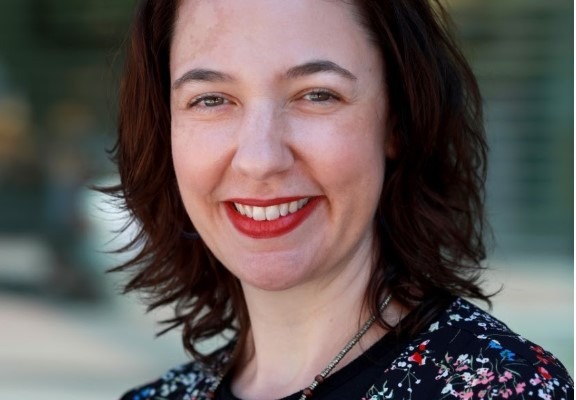In her paper entitled, “Towards an anticolonial photovoice: A research practice guide to theoretical and methodological considerations,” published in the Journal of Participatory Research Methods (2022), Jennifer Fricas, PhD, MPH, RN, writes:
“One way to acknowledge and address the interconnected legacies of colonialism and racism within photovoice health research is to adopt an anticolonial stance in framing our research and throughout its research phases. Almost all photovoice projects will intersect with historical and/or ongoing oppressions and could benefit from researcher familiarity with and application of an anticolonial framework.”
This anticolonial approach as it relates to photovoice is the focus of Dr. Fricas’ upcoming series of three advanced *PVWW workshops on the same topic. In anticipation of this, we asked her a few questions to help the Photovoice Worldwide community learn a little bit more about this timely topic and see if the workshops might add value to their own photovoice research.

PVWW: How important is an anticolonial framework when conducting participatory research, given what we know about traditional research methods throughout history and into the present day?
JF: Researchers who engage in participatory research usually already have a sense that they are doing so, at least in part, because they are aware that traditional academic forms of research often fall short when it comes to community engagement. When I teach community engagement to students of the health professions, I often define participation as differentiating between “doing to or for” someone and “doing with” them. The same holds for research.
Photovoice, as a form of participatory research, intends to engage with community members, regard them as experts, and leverage their expertise in the creation and dissemination of knowledge. However, not all engagement is effective and not all research studies designed to be participatory acknowledge the reasons behind why communities may be wary or skeptical about the notion of participation.
Histories (and present-day conditions) of colonialism and racism are deeply embedded within all our research systems and have served to control narratives and visual representations which marginalize people of color. This often occurred through the use of images, which can contribute to stereotypical representations of people. Given all of this, taking an actively anticolonial approach is one way to work to actively dismantle these historical oppressions and make our research more collaborative and transformative.
PVWW: What do you mean by “The personal is professional; the professional is personal” in relation to positionality?
JF: Positionality, or social location, has been discussed a lot in the photovoice literature. For my own work, I find it’s useful to question “compartmentalization.” I have often heard people say, “I keep my personal life personal and my professional life professional,” as if they are two different people! I think our training as researchers often tells us that we need to do this due to some (imagined) sense that research should be totally objective, that we should keep our thoughts and feelings and experiences out of it. I find that problematic. Research is always subjective. There are steps we take in biomedical studies to introduce objectivity to avoid influencing an outcome, yes. And these steps are important. Not all research is biomedical in nature; yet the concept of “objectivity in research” has somehow extended into many research realms.
The problem with believing we are objective is that it precludes self-examination of the ways in which we all carry biases and preconceived ideas about communities, people, and topics which we engage with in research. That’s why it’s important to spend time examining one’s positionality or social location and how it may intersect with the photovoice research or project. It is essential to be able to bring our whole selves to the work in an authentic way. This is a topic that we will dive into further in the first workshop.
So, yes, to me, one’s personal experiences and professional experiences both “count” in the formation of one’s approach and in the execution of the photovoice project or research. I have been much more effective in projects where I have acknowledged my social position, been transparent about my motivations, and addressed power dynamics (which are always present) directly and respectfully.
PVWW: In these workshops, you start out by examining how science and research have traditionally gone about determining what is true, and how that can affect outcome. Can you describe a real or imagined example of how an anticolonial approach might have resulted in a different outcome?
JF: This is a great question. What you are referring to, I think, is starting with the concept of epistemology in any research project, a step that I believe is often overlooked. Epistemology, in a sentence, refers to the ways in which we know what we know and what we count as evidence and consider knowledge. As part of colonialism, many ways of looking at knowledge and the world were subverted in favor of Eurocentric and U.S.-centric views of knowledge.
A relatively basic example would be the concept of authoritative knowledge “versus” traditional knowledge. (Note how the language we use to name the concept is itself biased. And the use of a duality – a pair of approaches, rather than a multitude of approaches – also indicates a certain epistemological frame.) Here the idea is that there is some knowledge which, because of its closeness to power and its dominance in use, is automatically deemed to be expert and often remains unchallenged. Meanwhile, there is much more knowledge that is untapped, viewed skeptically, and, in many cases, systematically overlooked.
Health practices are a great example. Indigenous peoples have been practicing medicine and healing using plants and other parts of the natural environmental since time immemorial. The academic health disciplines – medicine, nursing, and so on – are relatively young by comparison. These health disciplines generate a vast amount of important scientific knowledge, knowledge that is automatically regarded as authoritative and is published in peer-reviewed journals. It is valued because it is valuable, yes, but also because we view it through an epistemological lens which automatically confers high status because of what we believe “counts” as knowledge. Meanwhile, the health-related knowledges of Indigenous peoples, their systematic data collection and documentation (through various means, including oral storytelling), are not valued in the same way by many, because the origins of the knowledge, at least in part, stem from a different epistemological view about what knowledge is and how it is conveyed. This is one, minimally developed example, but I think it provides a bit of an introduction.
“Research is always subjective. The problem with believing we are objective is that it precludes self-examination of the ways in which we all carry biases and preconceived ideas about communities, people, and topics which we engage with in research.”
—Jen Fricas
PVWW: Who would best benefit from these workshops? How so?
JF: I think any researcher could benefit from these workshops! Of course, PhotovoiceWorldwide tends to attract participatory photography researchers, who I believe will benefit especially, as my examples also stem from application of the photovoice method. My goal is to introduce concepts which are critical to an anticolonial stance so that the workshop attendees have a basic familiarity with them. Each participant is going to think through how these concepts can be applied to their own project(s). There will be a brief pre-class activity which we will send out once a participant registers, to help prepare them for each workshop, so they have time in advance to reflect on some of the questions we will take up. And each workshop will have “hands-on” activities in which participants will work in small groups with the concepts we discuss, specifically thinking through how they could be applied in each phase of their photovoice work.
PVWW: What do you hope participants will take away with them following completion of the workshop series?
JF: From the first workshop in the series, Setting Our Intentions, participants will take away an understanding of foundational concepts central to an anticolonial approach, a review of the relevant photovoice literature that intersects with an anticolonial approach, and an appreciation of the importance of “right relationships” in each photovoice project. In the second workshop, Walking Our Walk, participants will apply anticolonial concepts to each phase of the photovoice process. Specifically, we will discuss forming collaborative partnerships, addressing issues of power dynamics in study/project recruitment, and transforming data collection. In the third and final workshop of the series, Increasing Our Reach, we’ll focus on the dissemination process and how to make it more anticolonial. Specifically, participants will take a critical look at avenues for dissemination, issues of rigor, and the use of pseudonyms and place anonymization.
I’m also really looking forward to participants bringing their questions, experiences, and lessons learned through their own photovoice projects so that I can learn from them!
PVWW: Be sure to join us March 16 at 11am PT/ 2pm ET/ 6pm GMT @photovoiceworldwide for an IG live conversation with Dr. Fricas, where she will be answering the following questions related to anticolonial photovoice:
- Let’s start from the very beginning- Where and when did the idea of anticolonial photovoice surfaced?
- What moved you to create a workshop about it?
- How do you think going deeper into this topic will benefit even seasoned practitioners?
*Dates of the three workshops are: April 16, May 18, and June 20.
